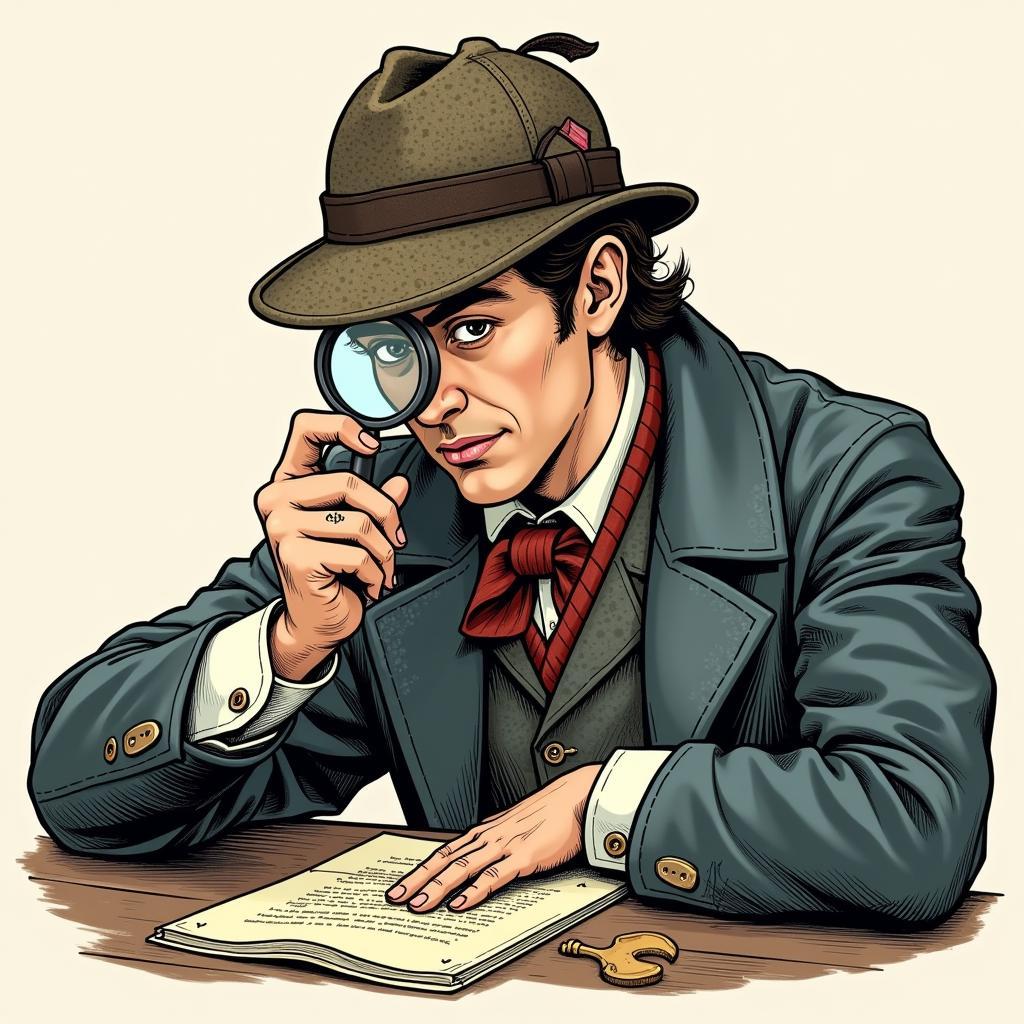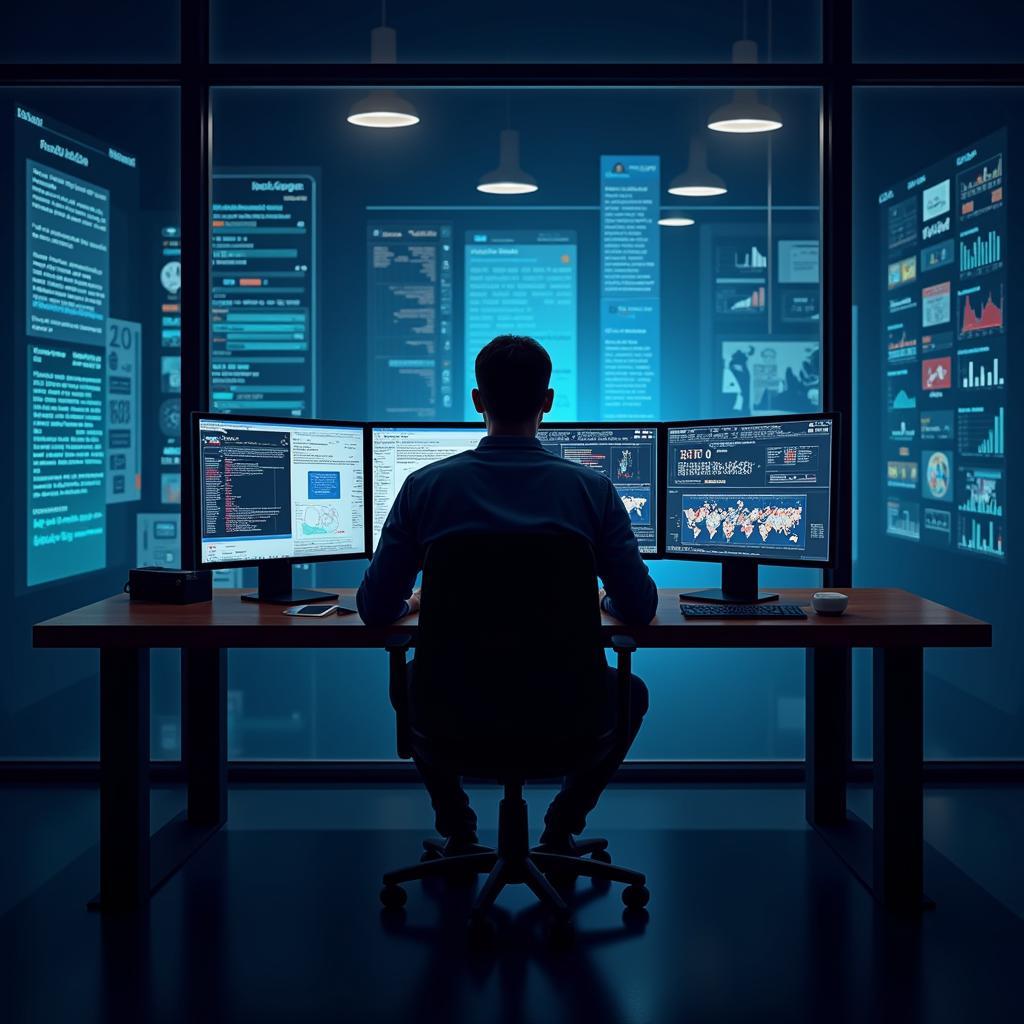The world of criminal investigation is full of intrigue, with “detective” and “sleuth” often used interchangeably to describe those who solve mysteries. But are these terms truly synonymous, or do they represent different approaches to cracking the case? Let’s delve into the fascinating world of crime-solving and uncover the nuances that separate detectives from sleuths.
Behind the Badge: Defining the Detective
A detective, traditionally associated with law enforcement agencies, operates within a structured system. Their work revolves around legal procedures, evidence gathering, and apprehending suspects.
- Official Capacity: Detectives hold official positions within police departments or investigative bureaus.
- Legal Framework: They operate within the boundaries of the law, adhering to protocols for obtaining warrants, conducting interviews, and collecting admissible evidence.
- Focus on Justice: A detective’s primary goal is to bring criminals to justice through legal means.
The Art of Deduction: The Sleuth’s Domain
Sleuths, often portrayed in fiction as independent investigators or amateur detectives, possess a keen sense of observation and an unyielding curiosity. They rely on their intellect, intuition, and meticulous attention to detail.
- Unbound by Convention: Unlike detectives, sleuths are not confined by legal protocols. They can pursue leads, interview witnesses, and gather information through unconventional methods.
- Emphasis on Logic and Deduction: Sleuths excel at piecing together seemingly disparate clues, using logic, reasoning, and deduction to unravel complex cases.
- Driven by Truth: While bringing the perpetrator to justice might be a consequence, a sleuth’s primary motivation is uncovering the truth, regardless of where it leads.
 Sherlock Holmes Examining a Clue
Sherlock Holmes Examining a Clue
Blending the Lines: When Detectives Embrace the Sleuth Within
The line between detective and sleuth can blur, with many real-life investigators embodying qualities of both. A skilled detective often relies on sharp instincts and deductive reasoning, much like a fictional sleuth.
- Profiling and Behavioral Analysis: Modern detectives utilize psychological profiling and behavioral analysis, techniques that delve into the mind of the criminal, echoing the intuitive methods often employed by sleuths.
- Collaboration and Information Networks: Both detectives and sleuths rely on networks of informants, contacts, and specialized knowledge to aid their investigations.
- Adaptability and Resourcefulness: The ever-evolving nature of crime necessitates that both detectives and sleuths adapt their methods, utilize technology, and think creatively to solve cases.
 Modern Detective Analyzing Data on Computer
Modern Detective Analyzing Data on Computer
Conclusion: A Shared Pursuit of Justice and Truth
While the terms “detective” and “sleuth” might evoke distinct images, the reality is that successful criminal investigations often require a blend of both worlds. Whether bound by the badge or driven by an insatiable thirst for truth, those who dedicate themselves to solving crimes play a crucial role in upholding justice and unraveling the mysteries that captivate our imaginations.
FAQs:
1. Can a private citizen be considered a sleuth?
Yes, the term “sleuth” is not limited to professionals. A private citizen who investigates a matter on their own can be considered a sleuth.
2. Do detectives and sleuths ever work together?
While not as common in real life as in fiction, there are instances where private investigators (who often embody sleuthing skills) assist law enforcement or vice versa.
3. What skills are essential for both detectives and sleuths?
Critical thinking, observation, communication, analytical skills, and attention to detail are crucial for both professions.
4. Are there any famous real-life sleuths?
While not holding official “sleuth” titles, figures like Allan Pinkerton (founder of the Pinkerton National Detective Agency) and Eugene Francois Vidocq (a criminal turned detective who inspired fictional detectives) exhibited exceptional investigative skills.
5. What are some recommended resources for those interested in criminal investigation?
Books by renowned crime fiction authors, documentaries about real-life cases, and forensic science courses can provide insights into the world of criminal investigations.
Need help with a case or have more questions? Contact our expert team at AI Bóng Đá. Call us at 0372999888, email us at [email protected], or visit our office at 236 Cầu Giấy, Hà Nội. We’re available 24/7 to assist you.